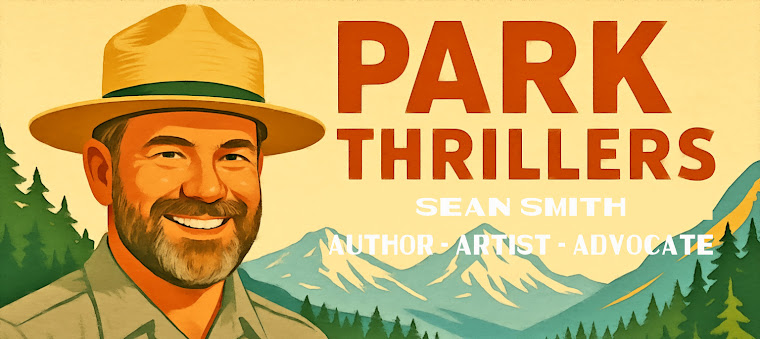What visitors are actually seeing
-
Restrooms and trash: With rangers furloughed and custodial contracts paused, restrooms close or go uncleaned, and trash piles up. That’s not hypothetical; these were signature failures in past shutdowns, and they’re recurring now. Expect closed visitor centers, suspended fee collection, sporadic trash pickup, and unmaintained roads and campgrounds.
-
Safety & rule compliance: Skeleton crews can’t keep up with crowds. This month, Yosemite’s limited staff has been swamped by surging visitation, with reports of illegal base jumping, unauthorized camping, and swimming in closed areas, exactly what happens when enforcement and education are thin.
Ecological and cultural resource impacts
We’ve seen this movie before. During the record 2018–2019 shutdown, vandals carved rocks, drove off-road through fragile habitat, chopped Joshua trees for illegal camp pads, and left human waste. Former leaders warned that some damage could take centuries to heal. Those same pressure points are in play again today.
-
Fragile soils & vegetation: Desert crusts and alpine meadows can be crushed by a single illegal vehicle track; repeated hits become lasting scars.
-
Wildlife disturbance: Overflow crowds and dispersed, poorly supervised camping increase human–wildlife conflict, with knock-on effects during migration and breeding seasons.
-
Cultural sites at risk: With fewer eyes on the landscape, looting and vandalism spike—damage to petroglyphs, mission-era structures, and historic features is notoriously hard to undo.
The National Park Service’s current contingency plan underscores the problem: only limited, essential functions continue during a lapse; most visitor services and resource management are suspended.
The economic hit to gateway communities
Parks are not just scenery; they’re economic engines. In 2024 alone, park visitors spent about $29 billion in gateway communities, supporting roughly 340,000 jobs and generating $56.3 billion in national economic output. When a shutdown disrupts managed access, closing visitor centers, canceling programs, scaring off visitors for a weekend or a week, the ripple is immediate for hotels, outfitters, restaurants, gas stations, guides, and seasonal workers.
This October, the National Parks Conservation Association estimates parks are losing about $1 million a day in fee revenue, funds that otherwise pay for trail repairs, restrooms, and safety projects. That’s money parks won’t have when the doors fully reopen.
Local news from Texas to California highlights the bind: towns that just posted record spending from park tourism now face cancellations, confusion, or unmanaged surges that strain services and dull the long-term visitor experience those economies rely on.
Community stopgaps and the double-edged sword
States and local partners often step in when the federal government shuts down. Utah announced its “Mighty 5” will remain open with limited services; Arizona and others have previously put up state funds to keep marquee parks staffed at a basic level. Volunteers organize trash pickups and restock toilet paper. Philanthropic groups help with signage and information.
These stopgaps matter, but they cut both ways:
-
Upside: They reduce immediate harm to resources, keep essential services running, and help small businesses survive.
-
Downside: They risk normalizing a dangerous narrative: “If locals, states, or donors can handle this, why not turn the parks over to the states or even private ventures?” Opponents of federal public-land management point to patched-together shutdown operations as proof that private operators or states could do better. That argument ignores the core Park Service mission, the long-term, science-based stewardship of national treasures and the economies of scale and consistency that a national system requires.
What you can do today
1. Call your Senators, Representative, and the Department of the Interior.
a. Urge them to completely close the National Parks during the shutdown. This is tough to ask, but closing the parks is necessary. Leaving them open without adequate staffing is a slow-motion loss of the very resources we love. Stress that protecting natural and cultural treasures must be paramount, or we risk losing the very values and resources the parks are supposed to protect.
Bottom line
Leaving parks “open” without staffing is not a win for access; it’s a slow-motion loss of the very resources and communities we love. The fix isn’t heroic volunteerism or state lottery stopgaps, it’s Congress doing its job so rangers can do theirs. Until then, the most patriotic thing we can do as concerned citizens is to urge Congress and the Department of the Interior to shut the parks until the budget debate is settled and the federal government re-opens.
###
Meet Sean Smith, a master of conservation, adventure, and storytelling! This award-winning
conservationist and former National Park and Forest Ranger has trekked through the wilderness of Yellowstone, Glacier, Mount St. Helens, and the North Cascades, keeping nature safe with his trusty ranger hat and boots. But Sean's talents don't stop there. He's a TEDx speaker and even a private pilot.
But amidst all these adventures, Sean's heart beats for storytelling. He's been spinning tales since childhood, and now he writes thrilling national park novels that'll have you hooked from the first page. Imagine the drama and mystery of the mountains combined with the adrenaline of a rollercoaster ride. That's what you'll find in Sean's books, set against the majestic backdrop of Yellowstone, Gettysburg, and Mount Rainier. His most recent thriller is set in Glacier and will drop later this year.
So, if you're craving an escape into the wild, look no further. Grab a copy of Sean's novels and prepare for an unforgettable adventure. These stories will transport you to the heart of the national parks, where danger lurks and heroes rise. Don't miss out! Find all his captivating novels right here and in the QR code included.




